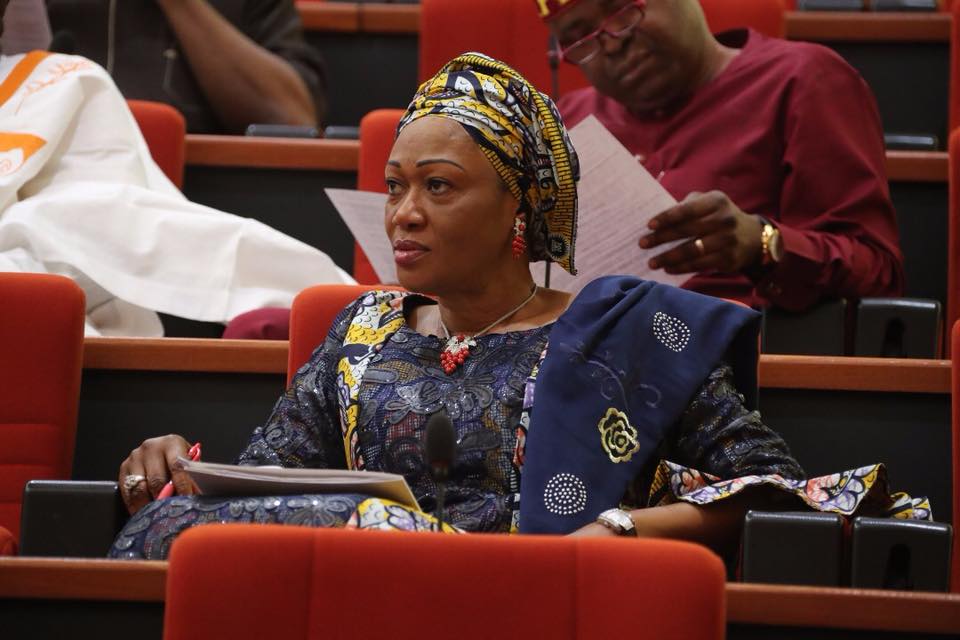Aminu Bello Masari, governor of Katsina State is a consummate reader of the national mood. Masari by the way, was Speaker of the House of Representatives from 2003 to 2007. Accentuated perhaps by the murderous humidity preceding the decisive advent of the rainy season, Nigeria’s sociopolitical pulse has been at an all-time high in recent days and weeks. And Masari has been working hard to mitigate this nationwide discomfiture.
An otherwise quiet weekend was disrupted by news of the incineration of the country home of Hope Uzodinma, the governor of Imo State, on Saturday April 24, 2021. That unfortunate incident turned out to be a sad precursor to a legion of calamities, from the North to the South, and from the West to the East of Nigeria, beginning from the first working day of the new week.
On Monday April 26, the fiery furnace of assaults, attacks, mortal wounds and deaths headlined the beginning of the week. While bandits killed a divisional police officer, eight policemen and two vigilantes in Kebbi State, the abductors of the innocent students of Greenfield University, Kaduna, killed two more of the youngsters to press home their demands for an N800million ransom. In Igbariam community in Anambra State, nineteen people lost their lives in an unprovoked attack, even as gunmen attacked soldiers at Amasiri, Ebonyi State.
Next door in Okigwe, Imo State, the police area command was attacked and burnt down by hoodlums, an incident which claimed five lives. From the north central state of Niger, Governor Abubakar Sani Bello raised the alarm about the occupation of parts of his state by Boko Haram, who had audaciously hoisted its flag in a community which is a mere two hours from the nation’s capital, Abuja.
Advertisement
On the same day, brigands kidnapped the proprietor of a hotel in Oyo State, taking along his wife, three children and five guests of the hotel. In Borno State, hotbed of Boko Haram insurgency, the terrorists tightened their grips on ungoverned spaces and highways in the state, while gunshots rented the air around and about Owerri, the Imo State capital. On the same day, the Imo State Commissioner for Entrepreneurship and Skill Acquired, Iyke Umeh was shot on the leg by gunmen.
Elsewhere in the North Central, students of the Federal University of Agriculture, Makurdi, Benue State were kidnapped, while Hausa motorcyclists and Yoruba youths tangoed in Iyana-Iba on the outskirts of Lagos, an incident which left many people injured. In an unfortunate incident of death by “friendly fire,” the Nigerian Air force on aerial reconnaissance in Maiduguri, mistakenly fired at land troops, killing many of them.
On Tuesday April 27, the lead story on the front page of Thisday newspaper very fittingly was “Nation In Turmoil, Bandits Kill Two More Kaduna Students.”
The New Telegraph on the other hand, opted for “Black Monday,” on its cover page, while The Nation beamed “Gunmen Kill 44 In Attacks” on its front page. The title of Nigeria’s legendary storyteller Chinua Achebe’s first novel, “Things Fall Apart,” was most appropriate to describe the nation’s sociopolitical conundrum that first day of the week. Indeed, with these many calamities in one single day, Nigeria’s “centre” was not hanging together.
Advertisement
Just before the last Christmas, Masari was supremely rattled by the abduction of over 300 students from the all-boys Government Science School, Kankara. The mass kidnap was carried out just as President Muhammadu Buhari arrived Katsina his home state, for a one week break. After a week of search and rescue operations by the security services, the children were eventually rescued. That was the high point of recurring incidents of attacks on communities, kidnapping and banditry in Katsina and other states in the North West at the time.
In response to this development, Masari shut down all secondary schools in the state, with a view to strengthening the security infrastructure in the institutions. This was aimed at preventing a recurrence of the horrendous incident. The state government closed the schools, because it needed time for introspection to manage a very knotty abnormality.
Probably satisfied by the security measures put in place while the institutions of learning were under lock, Masari recently directed the reopening of the schools. Among others, the schools in the last few months, have been secured by perimeter fences; watch towers have been built to allow security guards have a good view of the premises of the various schools, while five private security men known in common parlance as “maigad” have been recruited for each school.
Masari has also enjoined students and parents alike to be a lot more prayerful to stave off a repeat of the kidnap saga.
Masari’s prescription of an accentuated regime of religious rituals is not unsurprising. Like one who had run out of ideas and panaceas, a tacit admission of failure, Buhari himself had previously thrown up his hands in the air and admonished Nigerians to step up their supplicatory engagements with God. Nigerians have to be more prayerful, because according to him, only God can secure Nigeria. That is the depth of defeatism from the leader entrusted with our collective security and wellbeing.
Advertisement
More interestingly, Masari to add further teeth to the new security measures, awarded a N300 million contract for the supply of dogs, yes “bingos” to the various schools, to complement the new security architecture. By the arrangement, each school is to be provided with four dogs to complement the novel security masterplan.
Masari’s Commissioner for Education, Badamasi Lawal Charanchi confirmed in an interview that the effort is part of plans to augment the work of security personnel attached to each boarding school. Charanchi said “We were advised to deploy these dogs at each school because they have special abilities to detect intruders faster than human beings in many instances.” According to him, the dogs when deployed will alert the students and other security agents in case intruders or bandits visit the schools.”
Asked if the dogs were trained for this task, Charanchi proffered: “What people don’t understand is that when something is in you, you are born of it, it is part and parcel of you, that is why we looked at physiology. Whether a dog is trained or not, it has the powers to do what we want it to do. But if you have particular training for a particular thing you want to dog to do, you can as well enhance the dog.”
So the dogs, following Charanchi’s thesis, alert the students who are probably sleeping in their hostels or doing late night reading the way our generation studied several decades ago, about the presence of these insurgents and renegades within the premises of their schools. The only facade of security around them are the five “maigads”, most probably ex-servicemen and members of the Nigerian Legion, with their greying goatees. They are at best armed with dane guns, cutlassses and similar machetes, and of course prayers as propounded by Masari. And they are to confront deviants armed with AK-47 rifles, assault rifles, rocket propelled grenades, sub-machine guns and light machines.
Advertisement
Security agencies across the world have developed the capacities of special dog breeds to complement security operations. German shepherds, rottweilers, doberman, labradors and beagles, among others are trained to detect contrabands, drugs, tobacco and explosives among others. They are regular sights at arrival halls in airports in the United States of America, the United Kingdom and elsewhere.
A video clip which has been trending which complements Charanchi’s interview, features gaunt-looking, underfed dogs barking at some passersby in an environment which looks like a school premises. They are at best mongrels, variously known in local parlance as “ekuke” or “404.” These are the dogs that are supposed to raise an alarm to put both students and school authorities on alert in the event of danger.
Advertisement
Masari is not deploying unmanned drones or similar information technology-powered applications and devices to anticipate attacks and assist to neutralise bandits before they strike. Indeed, it would probably have been better if an Hausa/Fulani variant of “egbe” the potent traditional Yoruba contraption which helps you disappear in the face of danger, only to help you reappear elsewhere, was being explored by Masari. He needs to watch the “Africa Magic Yoruba” channel to acquaint himself with this indigenous application.
And why would anyone blame Masari for this ingenuity, when even the authorities at the centre, have failed in grand style, to subdue insurgency in the North East, banditry in the North West and the herders menace in the North Central? The South East has become the hotbed for daily unprovoked attacks on security personnel, both in their offices and on their beats. The situation is barely better in the South South, where uniformed personnel are regularly targeted by hooded gunmen.
Advertisement
For the avoidance of doubt, Masari, in a practical display of his desire to check lawlessness and violence in his domain, holds the record of being the first governor to pose for photographs with bandits. That was back in September 2019, at the height of abductions and criminal attacks on communities in the state. On that occasion, he met with a faction of bandits in Dankolo, one of the several villages in the state, in the company of military commanders, all in the effort to stem the slide into anarchy in the state and by extension, in the zone. It was a short lived ceasefire though, however, because the bad boys were back in their black business, within seven months.
Masari’s resort to the recruitment of dogs to bolster the battle against banditry and pillaging, however, speaks to the absurdity of propositions and suggestions for the containment of the nation’s security octopus. How sustainable is the project? Who will be responsible for the day-to-day management of the mongrels? Who feeds them? Is there an arrangement with the veterinary department of the Ministry of Agriculture and Natural Resources for maintenance of the health needs of the dogs? What happens in the event that one or two dogs die of natural causes or in the line of duty? Is there a breeding kernel that guarantees easy replacement? Or is this just another avenue for “chop chop”? There are a million and one plausible questions around this resort to dogs as allies in the war against criminality in Katsina.
Advertisement
Six years of the All Progressives Congress, APC’s administration at the centre of governance in Nigeria, this government which rode on the back of popular support based on its promise to end insurgency, the situation has failed on this score and several others. And this is without allusion to the several billions of dollars which have been expended on a phantom security fight. Genuine calls for the declaration of a national emergency on the security situation have also not been heeded.
A Yoruba proverb says that “a million assorted machetes are exhumed from their closets upon the demise of an elephant.” This exactly is where the failure of government to efficaciously manage the hydra-headed security debacle in our country, has brought us all.
Tunde Olusunle (PhD) is poet, journalist and scholar. He wrote from Abuja.
Views expressed by contributors are strictly personal and not of TheCable.
Add a comment







